Human psychology of fear of the unknown
We are living in a time where revolutionary technological advances for humanity are constantly being born. From nuclear energy, the internet, mobile phones to artificial intelligence (AI), all have created and are creating turning points for life on this planet.
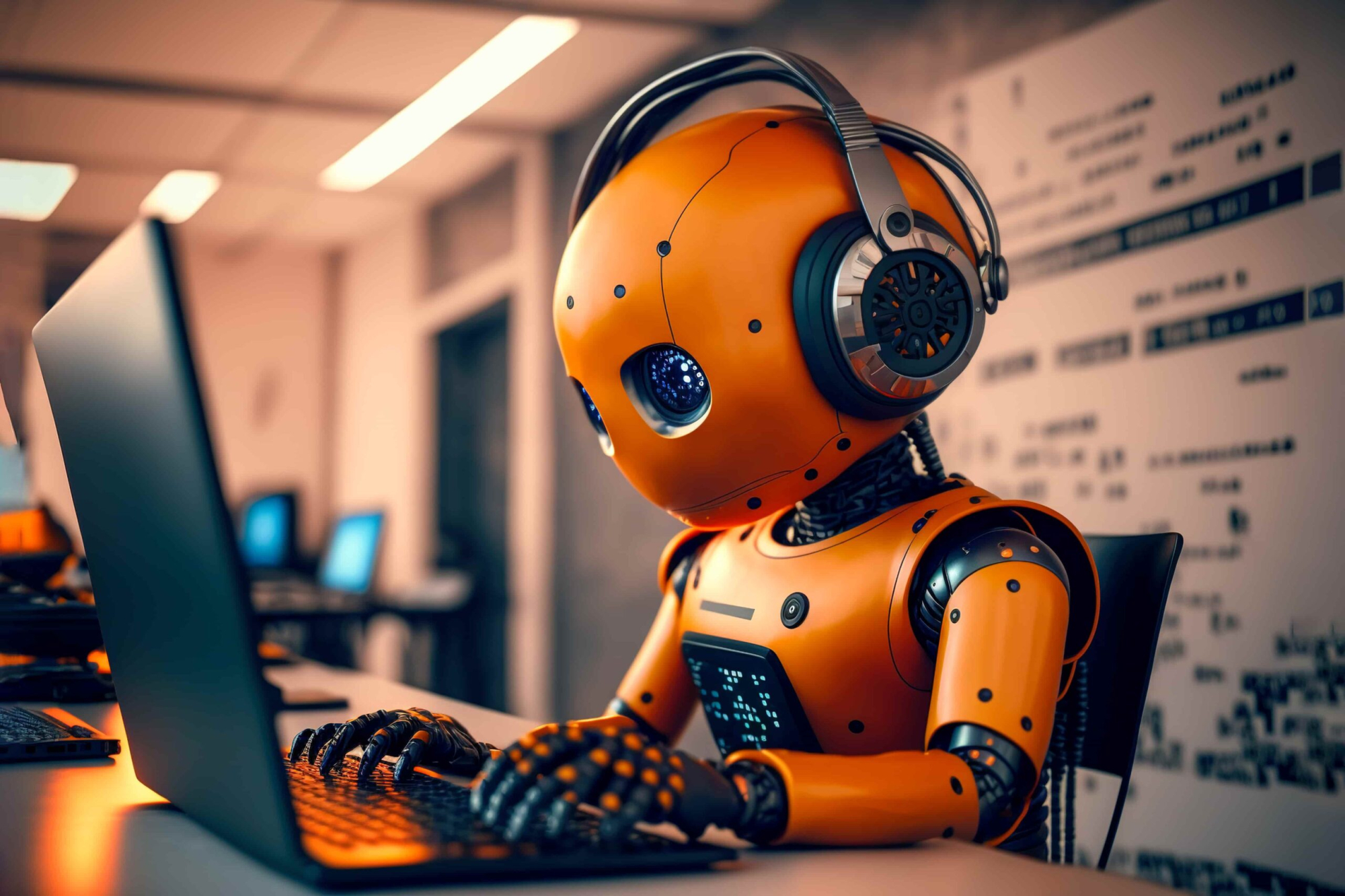
Humanity is afraid that AI technology will make machines control humans - Photo: GI
But the way humans approach technological inventions has not always been easy. On the contrary, suspicion and even fear have been the dominant trends, especially when looking back. Technological innovations have been ridiculed, criticized, or even demonized throughout history.
“We see skepticism about technology even in the earliest records we have of technological theory,” says German philosopher and historian of technology Christian Vater. There are many reasons for this, including the complexity of technological inventions and a lack of knowledge or understanding of the issues involved, or even simply the dominance of emotions, Dr. Vater told DW.
Meanwhile, Dr Helmuth Trischler, head of research at the Deutsches Museum in Munich, said that skepticism about new inventions is not evidence of a general fear of technology. "The biggest reason is limited awareness. But it is also good that people want to consider things carefully," said Dr Trischler. He also pointed out that technological inventions can cause both concern and panic to the extreme, as can be seen in the examples of railways and nuclear power.
Railways are seen as evil
Some 200 years after their invention, railways are a perfectly normal form of transport for people and goods around the world and part of the fabric of modern society. But in the early days, some people considered railways to be the work of the devil.
The world's first public railway opened in England in 1825. Soon steam locomotives were rolling fast, noisy and smoky across Europe - and with them came a fear of trains. In Germany at the time, there was a term that struck fear into many people: "Eisenbahnkrankheit," or "motion sickness." This was thought to be due to the speeds of up to 30 km/h - considered very fast at the time - and the dizzying shaking of the train carriage.
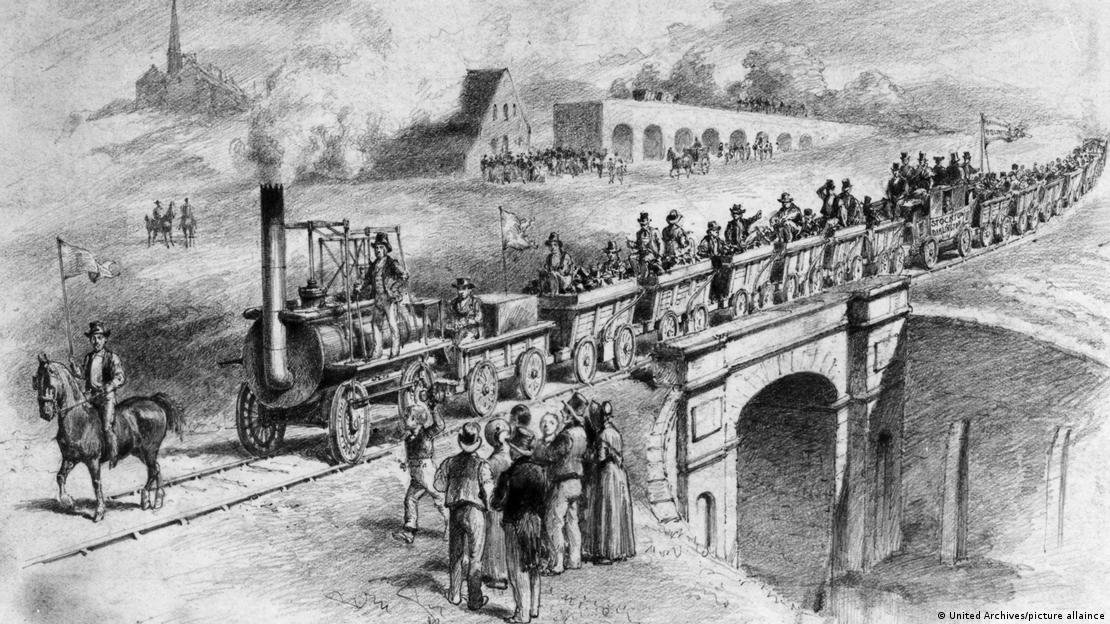
Illustration of the world's first train launched in England in 1825. Photo: DW
In Europe, even as the railway network expanded across Victorian England, ridicule of this mode of transport remained strong, as evidenced by satirical caricatures and highly negative police reports of incidents involving trains.
German researcher Trischler said these reactions were “completely understandable”. Technological advances often spark fear, causing people to react to predictions and worries in a catastrophising way. “After all, the new arouses curiosity and can easily turn into skepticism. Technology is fundamentally linked to emotions,” Dr Trischler explained.
Fear of nuclear energy becoming a disaster
But not every invention immediately evokes negative emotions. For example, when nuclear power first appeared, public attitudes were quite positive. Germany's first research reactor was built in Munich in 1957, and four years later nuclear power began to be connected to the national grid.
In the 1960s, nuclear power was seen as a clean, cheap alternative to oil and coal, and it raised hopes of new industrial development. But the first voices of criticism were raised in Germany in 1975, when the construction site of a nuclear power plant was occupied by protesters. Environmental activists in Germany warned of climate change, groundwater depletion (since reactors require a lot of water for cooling) and possible security issues associated with nuclear power plants.
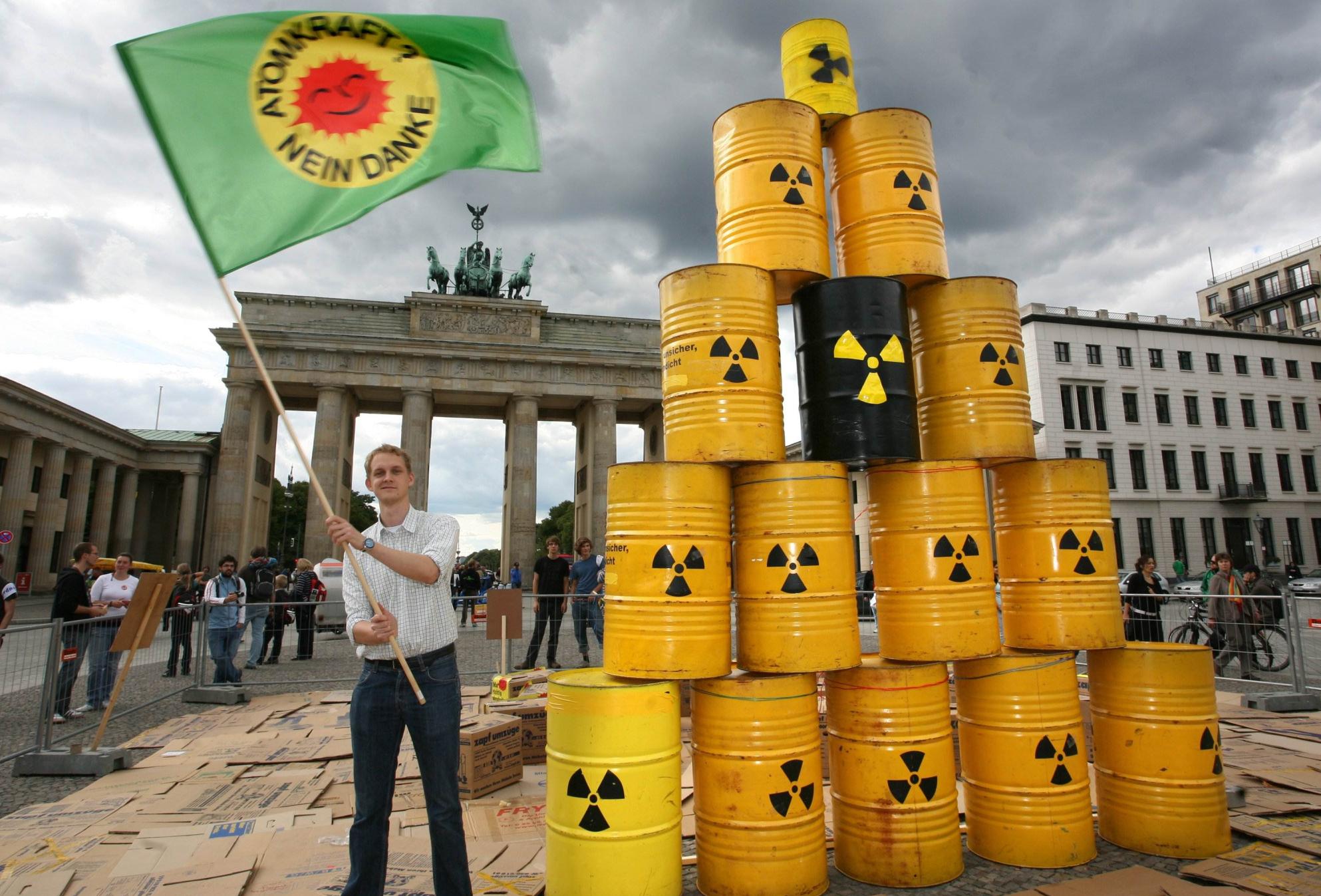
Nuclear energy remains opposed to this day. Photo: Bloomberg
The anti-nuclear movement grew rapidly, fueled by fears after incidents such as the partial reactor fire at Three Mile Island, Pennsylvania (USA) in 1979 and the disaster at the Chernobyl nuclear power plant (former Soviet Union, now Ukraine) in 1986. Nuclear power was a topic of debate for decades, until the disaster at Fukushima in Japan in 2011 led many countries to decide to permanently eliminate nuclear power or not dare to install new ones.
While in some parts of the world nuclear power is still seen as a viable alternative to fossil fuels, in others it evokes an almost existential anxiety. “When we think about why people are concerned about nuclear power, we can point to the question of nuclear waste, to Chernobyl or Fukushima. Whether it is a man-made accident or a natural disaster, it always becomes a motivation for technological skepticism,” says Dr Valter.
To the point of fear of machines controlling humans
How fine the line between goodwill and skepticism, support and rejection can become is illustrated by the current debate over AI. American computer and cognitive scientist John McCarthy coined the phrase “artificial intelligence” in 1956 to describe a branch of computer science whose goal is to create machines with human-like intellectual abilities.
After decades of development, the AI debate has recently focused on the ChatGPT chatbot, an AI app that was released in November 2022 and immediately sparked controversy. In March, Italy responded by becoming the first country to block the software, at least temporarily. ChatGPT is now allowed to operate again in Italy, but only after the app's developer pledged to clarify user data issues with the Italian government.
While AI promises many benefits — such as improving health care or increasing road safety — there are also plenty of critics of the technology. Fears seem to run in two directions: Some worry about the potential for misuse, tampering or misinformation, as well as the future of their jobs and intellectual property, while others worry about future technological developments that could gradually give AI more power and lead to machines controlling humans.
But Dr. Trischler says that general concerns about AI stem from the complexity of the technology, not from vague emotions. “Questions about the real impact of AI on one’s career are legitimate concerns, not a blanket fear of machines,” he says. “Predictions that AI will eventually make all human creative endeavors redundant and that machines will take over the world are well-founded.”
Khanh Nguyen
Source






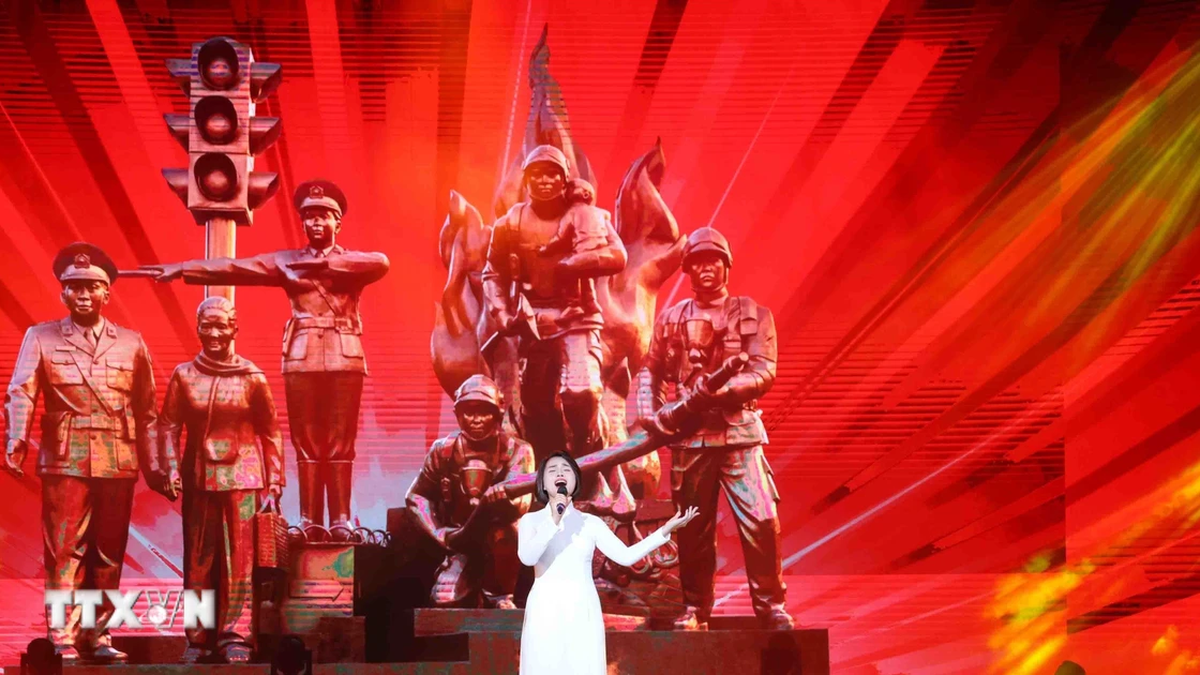


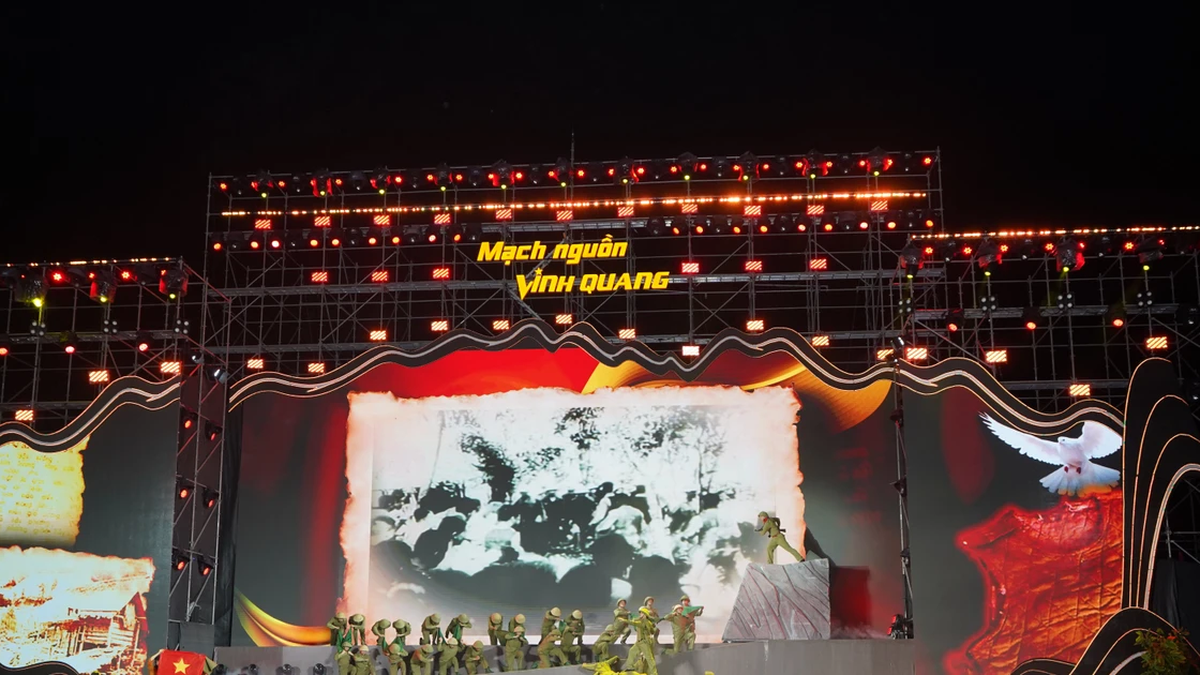

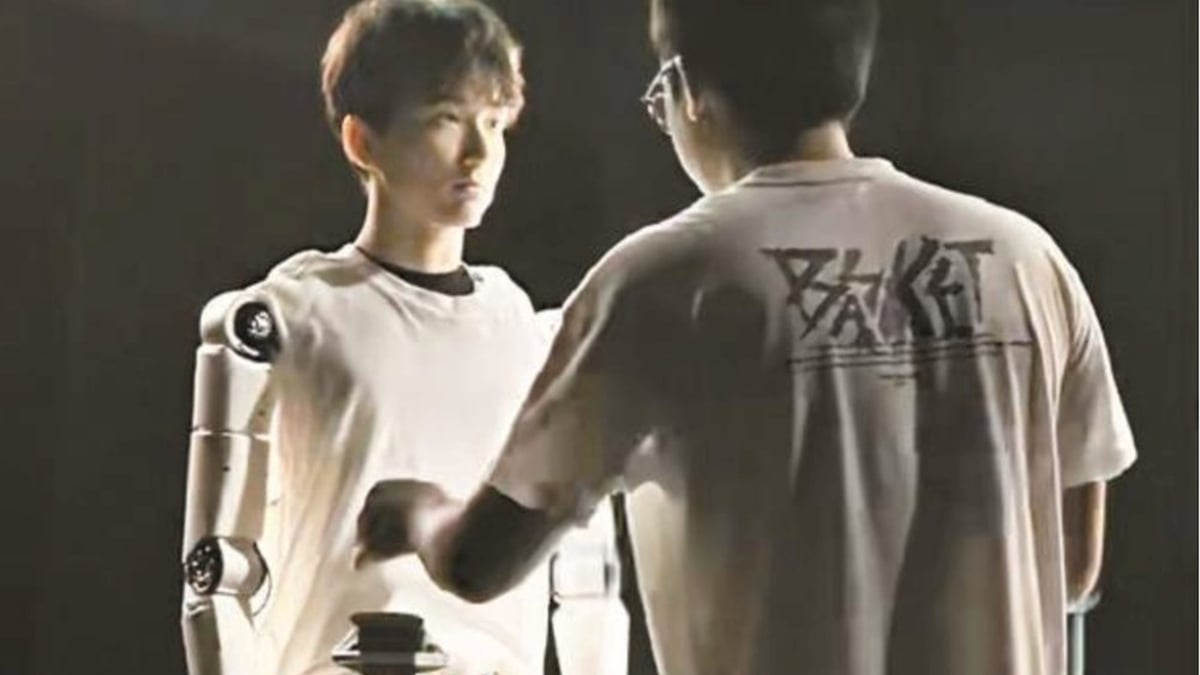























































































Comment (0)